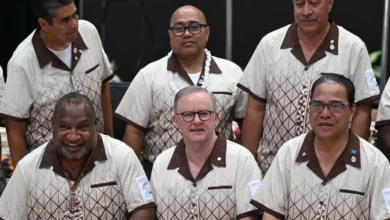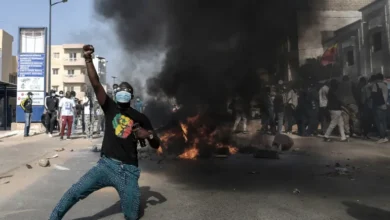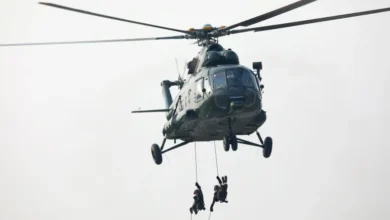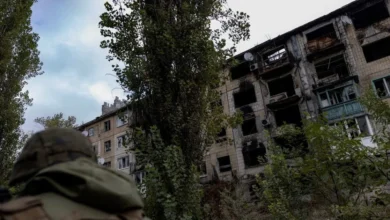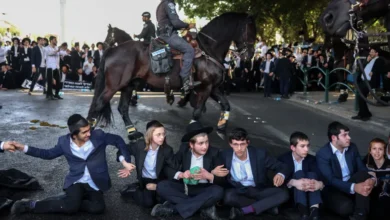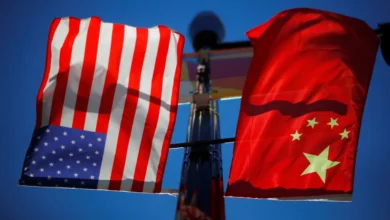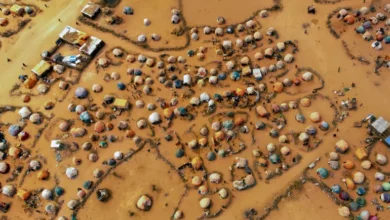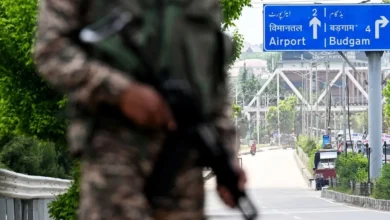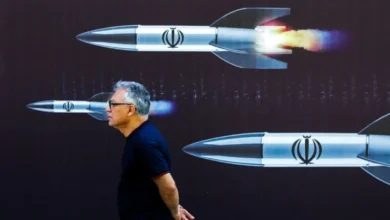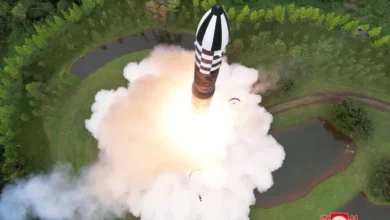China spinning a ‘web’ of influence campaigns to win over Taiwan
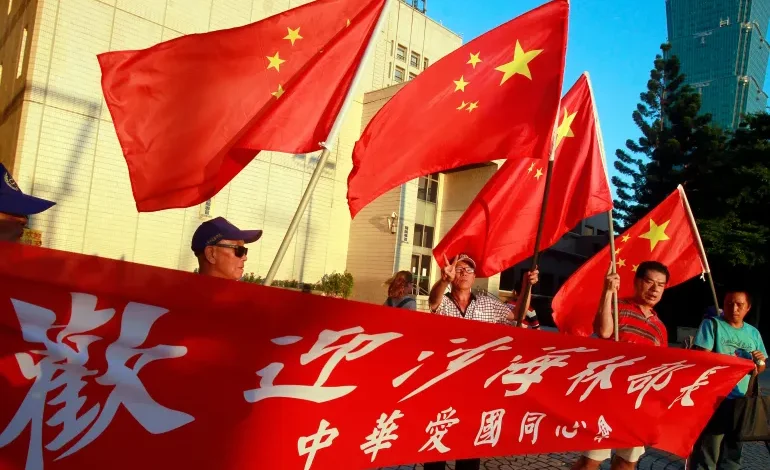
Squeezed against apartment blocks deep in New Taipei City, the Guanghe Fude Temple, dedicated to the earth god Tudigong, seems like a typical Taoist shrine.
The small house-like structure has marble walls, a tiled roof adorned with dragons and a ticker-tape LED sign – a common addition – protecting an interior of wood-carved reliefs, a sand-filled urn for josh sticks and a more fire-safe wall of electric candles. Then, there is Tudigong himself, wearing a bright gold and red sash.But Taiwan’s media has alleged the temple is associated with China’s United Front Work Department, a Chinese Communist Party (CCP) agency that leads a wide-reaching influence campaign to “win friends and influence people”.
Speaking to Al Jazeera on a brief tour of the temple, Liang Tsu-wei, the temple committee’s honorary chairman, says the media have it slightly wrong. He insists that while he is a member of the United Front and Taiwan’s fringe pro-China Unionist Party, the temple is neutral ground.
While Liang says he would one day like to see the peaceful reunification of China and Taiwan, he engages in mostly small-scale political activities. “We have a lot of demonstrations and protests against the Democratic Progressive Party government,” he said. “If we think their policies are wrong, we will mobilise thousands of people to demonstrate and protest. But it’s up to [them] to decide whether or not to go.”
By Liang’s telling, the United Front and Unionist Party sound like any other political group active in a democratic society and temples like Guanghe Fude simply offer a casual setting for neighbours to chat and get to know each other.But there are also plenty of people, like political scientists and experts in Chinese politics, who see the activity of such groups another way: as a second subversive front in Chinese President Xi Jinping’s campaign to achieve “reunification” and “liberate” democratic Taiwan’s 23 million people by peace or by force by 2049 – the deadline for China’s “national rejuvenation“.
Carrot and stick
The CCP has pledged to take control of Taiwan ever since the Chinese nationalists set up their government on the island after losing China’s Civil War in 1949.
The United Front offers many of the carrots to the headline-grabbing sticks – sanctions, diplomatic isolation and overt threats – of the People’s Liberation Army (PLA), China’s principal military force. This dual strategy exists because, despite China’s superior military power, an attack on Taiwan would still carry a great cost to Beijing because it would probably drag in the United States, Taiwan’s main security guarantor.
Worse, if the CCP were to achieve anything less than total victory, it could spell regime change. Convincing Taiwan to come willingly and avoid a devastating war would be a “win-win” for Beijing.“For Xi and the CCP, peaceful unification with Taiwan is the best plan. They also know peaceful reunification will not work if they withdraw PLA’s military actions against Taiwan. That’s why Xi and the CCP never renounce the right to use force,” said Kuan-chen Lee, an assistant research fellow at Taiwan’s Institute for National Defense and Security Research (INSDR).
The overall strategy focuses on “changing the perceptions of the Taiwanese people”, Lee said by email. “It attempts to deepen Taiwanese people’s understanding that (1) reunification has advantages; (2) Taiwan independence is a dead end; (3) outsiders cannot be relied on. In other words, the CCP’s priority of pursuing reunification is to sow the seeds of peaceful unification among the people of Taiwan, rather than a full-scale invasion.”
United Front activity comes in many forms, some directed by the United Front Work Department office in Beijing, but sometimes through less formal channels, says John Dotson, deputy director of the Global Taiwan Institute and an expert in Chinese propaganda.
The United Front works openly through “peaceful reunification” groups in Taiwan and abroad, many of which can be traced to the United Front’s China Council for the Promotion of Peaceful National Reunification. Groups like these and the Unionist Party often take part in “cultural exchanges” with the CCP through group trips to the mainland.
There are also well-known ties between temples in Taiwan and China, particularly those dedicated to the Buddhist-Taoist deity Mazu – the goddess of the sea – and through underworld criminal activity.
Not all of this work is a positive pan-cultural movement, says Gerry Groot, a senior lecturer and expert on the United Front at Australia’s University of Adelaide.
“While United Front work is often presented as winning friends to the Communist Party, the other side of the coin is to delegitimise and isolate enemies in order to destroy them,” he said. “In this case, it’s to win over people in Taiwan to support unification as well as to delegitimise the idea of independence and the notion of Taiwan as any sort of independent entity – and that applies not only to Taiwan but internationally.”
